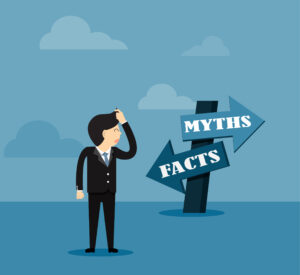Millions of Big Earners Should Expect Higher Payroll Taxes in ‘17

For those who have been excited to see their tax bill go down under a Trump administration, there might be cause for some concern, especially for some of the country’s highest earners. That’s because for the millions of workers who pass a certain threshold a tax hike is coming. So why the increase?
First, this change was in place before President Trump won the election in November. This scheduled change comes in the form of an adjustment to Social Security payroll taxes, and it will affect a lot of high earners. Over the past several years, workers have paid a 6.2 percent payroll tax to Social Security, which is matched by employers and automatically deducted from their paychecks.
That number will remain the same in 2017, but there is a catch. It used to be that workers only paid that amount on the first $118,500 they earned for the year. This year, that threshold increases to $127,200. That will amount to hundreds of dollars for anyone affected. Meantime, for self-employment workers, the news is even worse because they are forced to pay the full Social Security tax themselves without splitting the cost with an employer.
So how many people are we talking about? Anyone that makes less than $118,500 won’t be affected but the estimated 12 million workers that make more than that will see a hit, which amounts to one of the biggest changes in the tax code in nearly 30 years.
http://time.com/money/4628475/payroll-taxes-social-security-2017/
Myths About Trusts
Myths About Trusts Trusts are a dependable way to arrange for the management of family funds. Yet even financially sophisticated people settle for less satisfactory alternatives. Lack of knowledge isn’t the problem. It’s the assorted myths about trusts handed down over the years. Myth #1. Only the very rich use trusts. Because what the superrich…
Calculating Capital Gains Tax on the Sale of a Collectible
Calculating Capital Gains Tax on the Sale of a Collectible Uncle Sam takes a tax bite out of almost every asset sold and collectibles are no exception. Indeed, collectibles are currently subject to one of the highest rates of federal taxation on an investment property. Long term Capital gain from the sale of a collectible…
Don’t Get Scammed on Your 2015 Tax Return
Don’t Get Scammed on Your 2015 Tax Return By Alan Olsen, CPA, MBA (tax) Managing Partner Greenstein Rogoff Olsen & Co. LLP It’s tax season and for a lot of people that can be a very scary time of year. Some people will attempt to go it alone and use an online tax program, while…
Sales Tax Deduction Option, State and Local
[vc_row][vc_column][vc_column_text] Sales Tax Deduction Option, State and Local The Tax Relief and Health Care Act of 2006 extended the election to deduct state and local general sales taxes for 2006. The act was enacted after Schedule A (Form 1040), Itemized Deductions, and its instructions were printed. Because we were not able to include the instructions…



